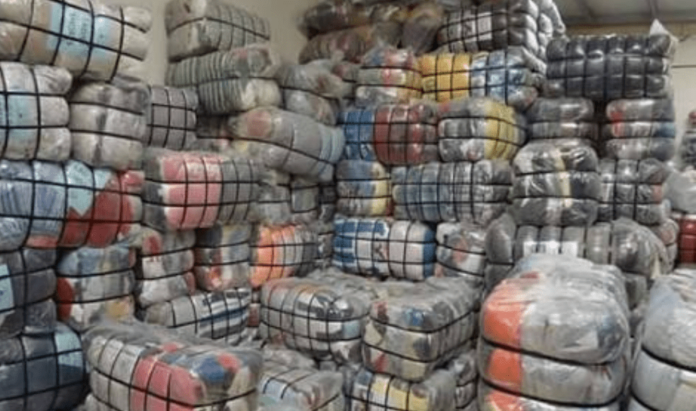Second-hand Clothing Imports: Competition from second-hand clothing imports and slow adoption of technology have been identified as the major challenges facing the Kenyan fashion industry.
A new report on the status of the local fashion industry indicates low priced second-hand clothing imports continue to dominate the market, creating unfair competition for local designers.
The Kenyan Fashion Industry Needs Analysis Report 2022 commissioned by the British Council in Kenya, however, notes there could be an opportunity to increase market share by creating awareness for products ‘Made in Kenya’.
The urban population tends to have preference for western apparel, giving designers an opportunity to create ready to wear designs which appeal to both local and global consumer needs, indicates the report.
It also calls for increased lobbying of policy makers to monitor the illegal importation of excess clothing and to understand the impact of second-hand clothing on the market in order to support the banning of second-hand clothing.
On digital transformation in the industry, the study finds that there a perennial struggle between traditional thinking and an innovative mindset.
“Retail in the fashion industry products is mainly through market fairs, chain stores, designer stores and E-commerce. The E-commerce strategy for retailing fashion products has become increasingly popular and important during the Covid-19 pandemic as retail shops faced challenges of running their businesses,”
reads part of the report.
Other challenges highlighted in the report include pricing and challenges of fluctuation. It calls on fashion companies to be flexible to adapt quickly to changes in the global market.
The report which is part of the Creative DNA 2.0 programme supported by the British Council provides information that will help unlock the potential of the fashion and apparel industry in Kenya.
The programme was launched in 2020 to develop skills, knowledge and global networks for local fashion designers. It is focused on promoting alternative and innovative approaches to the global fashion system with the ambition of demonstrating that the fashion sector is a professional choice for young people and a valuable contributor to the creative economy.
Speaking during the launch the Chairperson of the Kenya Fashion Council Ms. Akinyi Odongo said the report presents the critical findings that will inform the development of new strategic fashion design.
“Fashion and creative industry players should work with the government to create an industry that is credible, dynamic and economically sustainable. We also have the opportunity to design our strategies around the new realities in the global market and become shapers in the fashion sector,”
said Akinyi.
The study also found that small and medium enterprises starting up local and international businesses face challenges of access to finance resulting from high interest rate on loans; lack of collateral; complex regulations and ineffective legal enforcement strategies.
Maggy Wahome: How my mitumba business made me a millionaire
According to the designers interviewed during the study, the common trends of sustainability exhibited in the Kenyan ecosystem includes empowering local communities to participate in the sector through skills and capacity enhancement to enable them to work in the sector especially among youth and women.
“Many are also positioning themselves as social enterprises, an attractive proposition for international clientele. Another innovative practice that has been identified within the fashion industry is incorporating locally sourced inputs, and positive contributions to the environment through eco-friendly packaging and upcycling,”
reads part of the report.
The Covid-19 pandemic, provided an avenue for designers to earn income and an impetus for closer networks, collaboration and information sharing in order to meet orders from large orgranisations.
The ethically conscious “millennial” consumer continues to grow in influence and will command a powerful say in the way people spend their money including fashion and therefore, the industry will be compelled to factor their needs and preferences implying a complete transformation and innovation to make sustainable fashion accessible to all.










